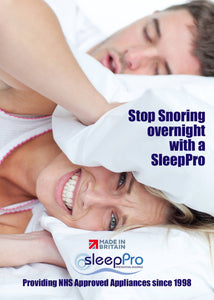
If you’re suffering from lack of sleep you’re advised not to take any important decisions. Sleep is an important subject and it matters a great deal to us. We spend nearly a third of our lives asleep, and it is as vital to our well-being as the food we eat and the air we breathe. But our 24-hour culture means we are getting less sleep than ever.
Neurosurgeons have recently researched the subject in depth and have come to the conclusion that there is “remarkably little understanding” of the consequences on the brain of chronic sleep loss. In the research paper they describe the “precipitous decline in sleep duration throughout industrialised nations”, adding that more research was urgently needed.
We all know that it is dangerous to drive, or to work with machinery when tired, because our reaction times are impaired and we might fall asleep at the wheel, but the more subtle effects of sleep deprivation on day-to-day living are far less understood.
Prof Adrian Owen, a British neuroscientist based at the Brain and Mind Institute at Western University in London, Ontario, is heading the research project and is launching the new sleep cognition study. The team of researchers involved want people from all over the world to sign up online to do cognitive tests with the Cambridge Brain Sciences website.
It’s full of specially devised computer games that have been designed to test skills such as reasoning, language comprehension and decision-making. The tests can be played on any computer, tablet or smart phone.
Prof Owen stated: “It may be that lack of sleep is having very profound effects on decision making and perhaps we should avoid making important decisions like buying a house or deciding whether to get married when we are sleep deprived.”
He added: “We all know what it feels like to not get enough sleep but we know very little about the effects on the brain so we want to see how it affects cognition, memory and your ability to concentrate.”
The team will collate the cognitive scores and see the variations depending on how much sleep people have had. Everyone’s sleep requirements are different, but if enough people join the study, it may allow scientists to determine the average number of hours needed for having truly optimum brain function.
Lack of sleep is a major worldwide problem and people the world over are chasing quality shut-eye, particularly as they have realised that the list of health conditions linked to sleepless nights is rising.
In Australia the Sleep Health Foundation has found that up to 45 per cent of Australian adults sleep poorly or not long enough on most nights. The Foundation’s Professor David Hillman says that the rise of technology is concerning as it is robbing people of time that should be spent asleep.
Hillman says data from the foundation’s research shows 12 per cent of respondents said they slept an average of 5½ hours, or less, a night. He says only about 3 per cent of the population is hard wired to sleep so few hours. “We are more challenged than ever. Two hundred years ago there were no electric lights and no electronic media so what did people do overnight? They went to bed and slept. Now we are so interconnected — when Sydney is asleep, New York is awake”.
The struggle for sleep to compete with digital devices is real and the large companies involved are ready to fight. Netflix chief executive Reed Hastings has named sleep as his main competitor, positioning it above tech rivals Amazon and YouTube.
Many people are looking for help with their sleep problem and are receiving it from bed and mattress companies, and manufacturers of wearable devices for sleep disorders such as snoring and obstructive sleep apnoea.
Ron Grunstein, a Professor of Sleep Medicine at the University of Sydney, says the awareness of sleep, and the growing lack of it, is on the rise. “These are the sorts of things people are looking at so that they get better value out of the sleep they do get,” The sleep expert adds that it’s Catch 22 as there is an increasing recognition that sleep problems cause other health problems, as well as health problems causing sleep problems.
Monday July 3rd 2017 to Sunday July 9th 2017 is Sleep Awareness Week
John Redfern



